If you’ve been lucky enough to have had a canine family member before, chances are you have a good understanding of what lies ahead when you adopt a new puppy. However, newbie pup parents might have a few concerns, including the Yorkie Poo lifespan and how long you might expect your pet to be around.
Preparation is a vital part of pet ownership, so it’s good to be clear on the various stages of your dog’s life and how to survive them. In this way, you can also better understand the best ways to care for your canine to ensure that they have a happy, healthy, and, above all, lovely-long life. These are all things that we will be covering here.
Table of Contents
- Yorkie Poo Lifespan
- Yorkie Poo Lifespan: How Their Generation Can Play A Role
- Life Stages of a Yorkiepoo
- Common Yorkiepoo Health Problems
- Yorkiepoo Signs of Aging
- Extending the Lifespan of a Yorkie Poo
- Frequently Asked Questions About Yorkie Poo Lifespan
Yorkie Poo Lifespan
The sassy, spunky, smart Yorkiepoo is an adorable cross between a Yorkshire Terrier and a Miniature or Toy Poodle. Loving nothing more than to cuddle up on a willing lap, these darling dogs make perfect mini-pup companions for singles, retirees, and families alike.
Yorkiepoos happily enjoy nicely long lives of around 13 to 16 years. However, it wouldn’t be all that common to see a pup living quite a bit longer than this even. Many can even get to 17 or 18 years of age when cared for in the right ways.
This is in part down to their more diminutive size. While larger animals tend to outlive smaller ones overall, within species, there seems to be a significant advantage to being little. This is definitely the case when it comes to canines. Larger dogs live, on average, three to four years less than smaller ones.
Another factor that gives them a nice little health boost is their status as mixed-breed dogs. Pups with the wider variety of genes that comes from having two distinct parents benefit from something known as hybrid vigor. Basically, they are less susceptible to genetic conditions that pass down through breed lines.
Individual Differences
Depending on which Poodle parent was used in the breeding, you can get Miniature Yorkipoos and Toy ones. While the Miniature ones weigh between 10 to 14 pounds and stand 10 to 15 inches or less to the withers, Toy Yorkiepoos are only 3 to 6 pounds and less than ten inches tall. Either way, these dogs have just a handful of needs compared to their larger, more care-intensive cousin canines, which is why they tend to be so popular.
Yet, this size rule (as outlined in the above section) even goes so far as to impact these two different types of Yorkiepoo. Basically, the smaller the Yorkiepoo, the longer they are said to live. This means that Toy ones are more likely to be on the higher end of the lifespan average while Miniature Yorkies will be at the lower end. However, lifestyle factors will likely play a much larger role, given that the size difference between the two isn’t really that much.
There can also be some gender-related differences here, with female dogs living around a year longer than males, on average. Regardless of sex, neutering your pup can also give them a nice little lifespan boost. Not only that, but these dogs tend to be much happier and have fewer behavioral problems than intact ones.
Yorkie Poo Lifespan: How Their Generation Can Play A Role
A Yorkie Poo’s lifespan can also be influenced by their generation. Essentially, a puppy’s generation tells us how they were bred and can give us a hint about their potential genetic makeup.
Now, genetics is a very complicated topic and a Yorkie Poo’s generation only gives us a rough estimate. Still, by knowing a Yorkie Poo’s generation, we do get a good hint about their potential traits and even lifespan.
There are F1, or first-generation Yorkie Poos that are produced by crossing a purebred Yorkshire Terrier to a purebred Poodle. Then there are multiple other variations – for instance, an F1b Yorkie Poo is created by crossing an F1 Yorkie Poo back to a Poodle. In that case, the majority of a Yorkie Poo’s genetic makeup likely consists of the Poodle’s genetics. Not only can this influence the puppies’ looks and temperament traits, it can also somewhat affect their lifespan.
For Yorkie Poos, their generation might not affect their lifespan as much as compared to some other breeds whose parents’ lifespans are vastly different. The purebred Yorkshire Terrier has an average life expectancy of about 13 to 16 years, whereas purebred Miniature and Toy Poodles tend to live around the same age, sometimes even longer than that.
Moreover, as we mentioned earlier, crossbreeds are said to benefit from hybrid vigor thanks to their more diverse genetic makeup. However, hybrid vigor may diminish with each consecutive generation when one purebred’s genetics are introduced more into the mix over those next generations.
Let’s take a look at all the possible Yorkie Poo generations and how they’re achieved exactly:
| 1st Parent | 2nd Parent | % Yorkshire Terrier* | % Poodle* | |
| F1 Yorkie Poo (first-generation) | Yorkshire Terrier | Poodle | 50% | 50% |
| F1b Yorkie Poo (first-generation backcross) | F1 Yorkie Poo | Poodle | 25% | 75% |
| F1bb Yorkie Poo (first-generation backcross backcross) | F1b Yorkie Poo | Poodle | 12.5% | 87.5% |
| F2 Yorkie Poo (second-generation) | F1 Yorkie Poo | F1 Yorkie Poo | 50% | 50% |
| F2b Yorkie Poo (second-generation backcross) | F1 Yorkie Poo | F1b Yorkie Poo | 37.5% | 62.5% |
| F2b Yorkie Poo (alternate cross) | F2 Yorkie Poo | Poodle | 25% | 75% |
| F3 / Multigen Yorkie Poo | F1b Yorkie Poo or higher | F1b Yorkie Poo or higher | Varies | Varies |
*These are generic calculations only – genetics are rarely mathematically accurate.

F1 Yorkie Poo Lifespan
An F1 Yorkie Poo, a.k.a first-generation Yorkie-Poo is achieved by crossing two purebreds. The traits in an F1 litter can vary significantly, as their genetic makeup is roughly 50-50 mix of both the purebred Yorkshire Terrier and Poodle.
This doesn’t mean that all F1 Yorkie Poos will have 50% Poodle and 50% Yorkshire Terrier in their genetic makeup. Rather, it can be slightly more difficult to predict the outcome in first-generation pups.
The great thing about F1 Yorkie Poos is that they usually benefit the most from hybrid vigor. This indicates that they’re less likely to inherit health conditions specific to either purebred Poodles or Yorkshire Terriers, and they might live longer and healthier lives.
F1b Yorkie Poo Lifespan
F1b Yorkie Poos, or first-generation backcross Yorkie Poos are created by crossing an F1 Yorkie Poo back to a Poodle. This means that the majority of their traits often come from the Poodle’s side of their lineage. As a result, they’re more likely to take after the Poodle parent with their traits, such as their coat type and even lifespan.
However, as both Poodles and Yorkshire Terriers have a very similar life expectancy, there shouldn’t be much of a difference even if an F1b pup takes more after the Poodle parent. That being said, hybrid vigor might be less prevalent in F1b Yorkie Poos and they may be more at risk of certain health conditions that are common in Poodles.
F1bb Yorkie Poo Lifespan
Then there’s the first-generation backcross backcross Yorkie Poo, in short the F1bb Yorkie Poo. These little Doods are produced by crossing an F1b Yorkie Poo then again back to a purebred Poodle.
Compared to F1b pups, F1bb Yorkie Poos often have an even higher percentage of Poodle in their genetic makeup. Again, this could indicate that F1bb Yorkie Poos might be more inclined towards inheriting the Poodle’s genetics, including certain health issues, as the hybrid vigor is less prevalent in the F1bb generation.
Another thing to note is that if a breeder’s goal is to achieve smaller Toy Yorkie Poos, they might prefer backcross generations like the F1b, F1bb, and F2b. As we discussed before, this could also positively impact the puppies’ lifespan, as smaller dogs may outlive larger ones.
F2 Yorkie Poo Lifespan
When it comes to the F2, or second-generation Yorkie Poo, we’re looking at a similar genetic makeup as the F1 Yorkie Poo. F2 Yorkie Poos are created by crossing an F1 Yorkie Poo to another F1 Yorkie Poo. Depending on the traits and genetics of those F1 Yorkie Poos used in the mix, the outcome may lean on either side of their lineage.
Although F2 Yorkie Poos might have a similar 50-50 mix of both parental breeds, they likely won’t benefit from hybrid vigor as much as F1 Yorkie Poos.
F2b Yorkie Poo Lifespan
There are two ways to create a litter of F2b Yorkie Poos – either by crossing an F1 Yorkie Poo with an F1b Yorkie Poo, or by crossing an F2 Yorkie Poo back to a Poodle. As both of these variations are achieved over multiple generations, they won’t benefit as much from hybrid vigor, either.
Since an F2b Yorkie Poo’s genetic makeup often consists mostly of the Poodle, they might be at risk of certain health conditions that are more common in purebred Poodles. Although there’s that risk, ethical breeding usually helps netigate many genetic conditions thanks to extensive health and DNA testing of the breeding dogs.
Life Stages of a Yorkiepoo
The outdated notion of seven canine years being equivalent to every human one still seems to be going strong even with people who are not so new to dog ownership. However, this can cause all kinds of confusion with regards to understanding the specific needs of your pooch, which can alter through different periods of their lives.
As detailed above, larger dogs age faster and die younger than smaller ones. What this tells us is that all dogs age differently, depending not just on their size but on their breed too. Given that Yorkiepoos aren’t (yet) a distinct breed in their own right, understanding their life stages takes a little guesswork. However, this being based on the knowledge we have about the parent breeds does make it somewhat educated guesswork.
Yorkiepoos would be considered puppies until somewhere around the age of 3 months. This may seem early, and in no way should they be regarded as full-grown adult dogs at this stage. This is simply the time when they are learning how to be dogs and deal with strange and unpredictable new situations – the socialization stage. While your pet is still very susceptible to developing fears at this age, they are growing in confidence by the day and will be eager to explore their new environment but will need support with this.
By 5 months, your Toy Yorkie may have already hit their adult height. Even larger dogs won’t be far off. Again you could be forgiven for assuming they have reached maturity. Still, the truth is they will be smack bang in the middle of their adolescence at this age. Your focus needs to be firmly on training – teaching your pup how to correctly behave in your home and beyond. Anything they learn here will form the foundations for the rest of their lives. You’ll also need to support them with teething at this time.
Somewhere between 6 and 12 months, depending on whether you have a Toy or Mini Yorkie, they will become a young adult. At this stage, you will notice that if your dog was overexcitable before, they calm right down now. However, they might still exhibit some puppy-like behaviors at times. Keep firm, fair, and consistent with your training, and this stage should breeze nicely by. Your pup will get to their mature size during this period and obtain their adult coat. When this happens, you can switch to adult formula food.
At 18 to 24 months, your pup will reach regular adulthood. This is where all that hard work you’ve put into training and socialization should really start to pay off. Your dog will be much more in charge of their own behavior at this point – cool, calm, and collected. They should still be quite active and energetic at times. Yorkiepoos tend to remain this way throughout their lives. Yet, you might need to watch their food habits and exercise routine more closely to keep the pounds off once they have stopped growing.
Experts say that smaller dogs like Yorkiepoos are generally considered to be seniors from around the age of 9 or 10. Here in their golden years, you will need to begin keeping a more careful eye on how your pooch is doing day-to-day. Very healthy Yorkies might not show any signs of slowing down until much later than this. However, they still become more prone to degenerative diseases, joint pain, arthritis, and more from this time. You will need to think about looking around for a decent senior food formula to support them with this.
Common Yorkiepoo Health Problems
Yorkiepoos generally take after their non-poodle parents in terms of health. Yorkshire Terriers tend to be a healthy breed, and most of the problems they deal with are highly treatable. These include:
- Epilepsy – often a sign of other underlying health problems such as hypoglycemia. Symptoms include unexpected and uncontrollable shaking, weakness, confusion, pale gums, and excessive drooling.
- Atopic dermatitis – otherwise known as chronic skin allergies. Prevalent in mixed breeds, you can spot this because your hound will constantly be biting, licking, and scratching. They may also have patches of dry skin and even hair loss.
- Hypothyroidism – Thyroid problems can be common in smaller breeds. As this regulates the metabolic rate, you may notice your dog has skin issues, fluctuating weight, is less active, and is very lethargic.
- Hyperadrenocorticism – otherwise known as Cushing’s Disease, is an enlargement of the pituitary gland which causes excessive production of certain hormones. Symptoms include muscle weakness, a distended abdomen, panting, lethargy, and heat intolerance.
- Legg-Calve-Perthes Disease is again common in mixed breed dogs. This is where the top of the femur begins to degenerate, which can cause the collapse of the hip and the onset of arthritis.
- Portosystemic Shunt – which is a faulty connection in the vein linked to digestion. Your pet might exhibit strange behavior related to disorientation, such as walking in circles or staring into space. In some cases, they may also have seizures.
- Patellar Luxation – this dislocation of the knee is often seen in smaller dogs. You might notice limping, lameness, and an unusual gait. Your dog may be less active – refusing walks and disinterested in play.
Yorkiepoo Signs of Aging
While it may be sad to think about, eventually, your darling little puppy Dood is going to start slowing down a bit. This doesn’t necessarily mean they are on their last legs, just that they will require a little more taking care of from this point onwards. You will need to make certain adjustments around this time to keep your pet looking and feeling great. For instance, finding a senior formula with the proper nutrients to support aging joints and bones is a great first step.
As your Yorkie ages, the first thing you might notice is that they may not get around as quickly as they did before. They could even be a little reluctant to go too far on their daily walks. They could be slower to get up from a sleeping position and less elegant with getting down into one. Switching your dog’s current bed out for one that is raised and comes with a memory foam cushion could really help a lot with giving them a comfortable place to snooze.
You can also purchase specially designed steps and ramps that help your elderly pet get up and down onto the couch or to your bed. This will lessen the impact on their stiffer, more painful joints while still allowing them to snuggle up with you, which, know these dogs, is still likely to be one of their most favorite things to do. Even with all this, keep an eye out for changes in the way your pup is moving about or in their behavior that may indicate something is wrong.
Extending the Lifespan of a Yorkie Poo
Purchasing your pet from a responsible breeder will stand them in good stead when it comes to longevity. Their barrage of genetic tests ensure that puppies are far less likely to be born with any heritable conditions which might have been passed on by the parent dogs.
Beyond this, the amount of time you might expect your Yorkiepoo to live can be determined by many factors – some within your control… others not so much. It goes without saying that you’ll want to protect your pup from harm and do the best you can for them, so let’s see the measures you can take to keep them happy and well.
Feed them a suitable diet for their life stage
A Yorkiepoo’s dietary requirements are determined in part by their size and weight. This also obviously plays a role in how much they feed them. While you can get some pretty good estimations online, it’s always good to follow instructions from the manufacturer of the food brand you are using. Keep in mind that overweight dogs are more at risk of illness, including many of the conditions listed above. They can also suffer from heart problems.
With regards to that, aim for all-natural foods with high-quality protein as the top ingredient and a happy mix of fats and veggies with just a few carbs. It’s better to opt for a food with a small list of recognizable ingredients. This reduces the chance that the food will be made up mostly of fillers such as wheat and cornflour with zero nutritional value. These are our top pick kibbles for Yorkiepoos.
Make sure they get plenty of exercise
While Yorkiepoos don’t require quite as much exercise as other dogs, this is still a vital part of their daily routine. These dogs do best with two 15 to 20-minute long trips out per day. Playing games about the house can also help keep your pup physically active and prevent them from piling on those potentially harmful pounds. Toys are great for this when you don’t have time for a game, and even when you do.
Another great thing about games and toys is that it helps to keep your fur baby mentally active too. While this is perhaps not quite so important for these descendants of companion dogs, it can help to reduce instances of separation anxiety when your pup is left home alone. This is a very real problem for these people-loving pups and can lead to a multitude of unwanted behaviors like chewing and barking.
Keep them safe at all times
As outlined above, Yorkiepoos don’t have too many troubles with disease when cared for in the right way. However, as smaller dogs, Yorkies, particularly of the Toy variety, are highly prone to injury, especially when they are puppies. For this reason, you need to take steps to avoid them getting hurt. Ensure your place is appropriately puppy-proofed before bringing your new darling home, and teach your kids how to behave around this new family member.
A yard is a great place for pups to hang out and get more exercise. It also provides a convenient toilet venue. Just ensure that it is gated and that there are no escape routes in surrounding fences or hedges. When taking your Yorkie out for a walk, take care that they are securely leashed. A harness may be a better idea for these teeny dogs than a collar around those little necks. This will all help reduce the likelihood of a traffic-related injury or an attack by another dog.
Quickly take care of any health problems
Identifying early signs of illness is crucial for giving your pet the best chance of recovery. That’s why it pays to do a little research on the type of complaints common to these dogs, as well as both the parent breeds (see above). Early vaccinations are also vital for keeping your four-legged friend in good shape throughout their lives. You’ll likely want to get your pup spayed or neutered when they are young to protect against pregnancy and/or reduce the chance of behavioral issues.
Regular trips to the vet also go a long way in ensuring your pal remains in the best physical condition. This is especially the case as they start to hit their twilight years, but it shouldn’t be avoided in their youth too. The more familiar the vet is with your pup, the easier it will be for them to notice any alterations in their appearance or behavior that could indicate that there is an issue to be dealt with. They are also an excellent source of advice on all other matters canines.
Brush, wash, and trim them regularly
Less obviously, coat maintenance plays a vital part in the overall health and well-being of dogs. Frequent brushing is necessary for most pups, especially for Doodles, who can inherit some pretty tough-to-care-for hair. While the Yorkshire Terrier coat tends to be long but straight and silky, the Poodle coat is curly, wiry, and prone to knots, tangles, and mats. If your pup ends up with this type of hair, you will be looking at grooming them every day. Having the right brush can really make all the difference with this.
Aside from grooming, you will also need to book regular trims for your pooch. If you choose to deal with this at home, we have some handy articles and videos on our site that can guide you with this. Check out our Top Yorkiepoo Haircuts & DIY Grooming Tips. Regular hands-on time with your pup helps you keep their skin irritation-free and allows you to check them over for any signs of injuries, parasites, lumps, and bumps. You might also need to take care of their anal glands, teeth, and gums.
Frequently Asked Questions About Yorkie Poo Lifespan
Yorkipoos are lucky pups that can live to the grand old age of 15 and even beyond. They inherit some seriously good genes from their Yorkshire Terrier parent and benefit from hybrid vigor too. The littler your dog, the longer they are likely to be around. However, this is heavily dependent on them having the right food, a decent amount of exercise, and plenty of love and care, among other things.
Yorkipoos are far less susceptible to the kinds of health conditions that plague other canines than their pedigree counterparts. This is down to their strong and more widely varying genes. Pick up your pup from a high-quality breeder, and you can rest assured that they are unlikely to have inherited any health problems from their parents, so all you’ll have to do is aim to keep them ticking over nicely from then on out.
This really is the toughest question to answer because all dogs are good dogs, and, in our opinion, Doodles are even better than that. However, there are certain indicators that a type of dog might be more suitable for your home than others. Yorkie’s are very adaptable Doods and can fit right in with most family situations – from more active to more sedentary. A little love and attention is all they really need to get along just fine.
Yorkie Poo Lifespan: Conclusion
Having a pet is one of the biggest joys in life, and we really do think it is something everyone should benefit from. However, if you are looking into getting a Yorkiepoo or already have one in your life, it’s good to be prepared. Doing a little research so that you can better understand how to keep your pet happy and healthy is a great thing, and your pup will thank you for it.
We hope this article provides all the information about a Yorkie Poo’s lifespan and different life stages to help you make the very best choices for your best friend.
Learn How to Care for Your Doodle Puppy!
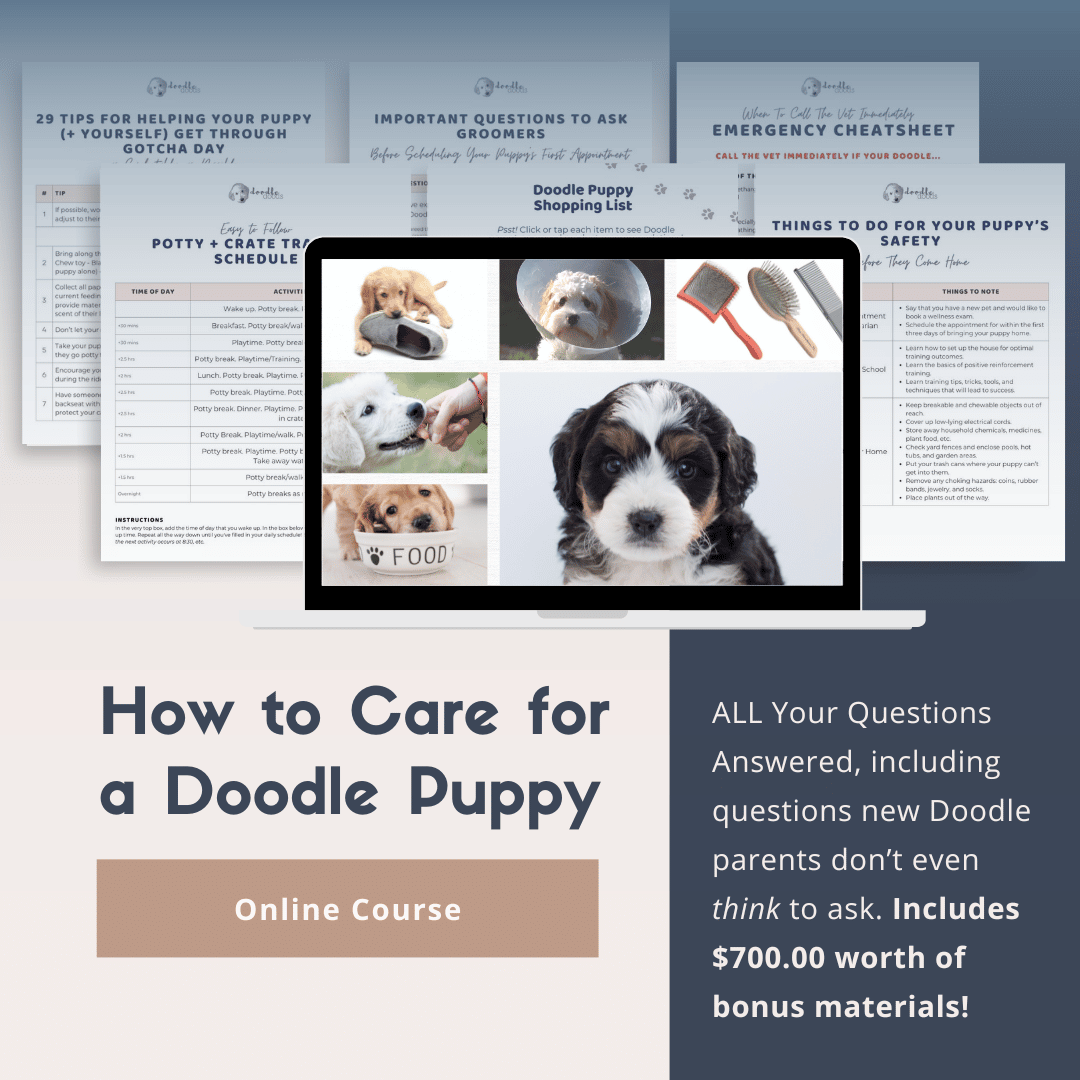
Perfect for first-time Doodle parents, get ALL your questions answered, including questions new Doodle parents don’t even think to ask.
Plus, get $700 worth of Bonus Materials for FREE, including:- Doodle Parenthood Community and Support Group ($190 value)
- Doodle Puppy Growth Tracker ($20 value)
- EMERGENCY Cheatsheet: When To Call The Vet Immediately ($50 value)
- HELP! Button ($145 value)
- And SO MUCH MORE!
The information on this page is for informational purposes only. It is not intended to be a substitute for qualified professional veterinary advice, diagnosis, or treatment. Always seek the advice of your veterinarian or other qualified animal health provider with any questions you may have.

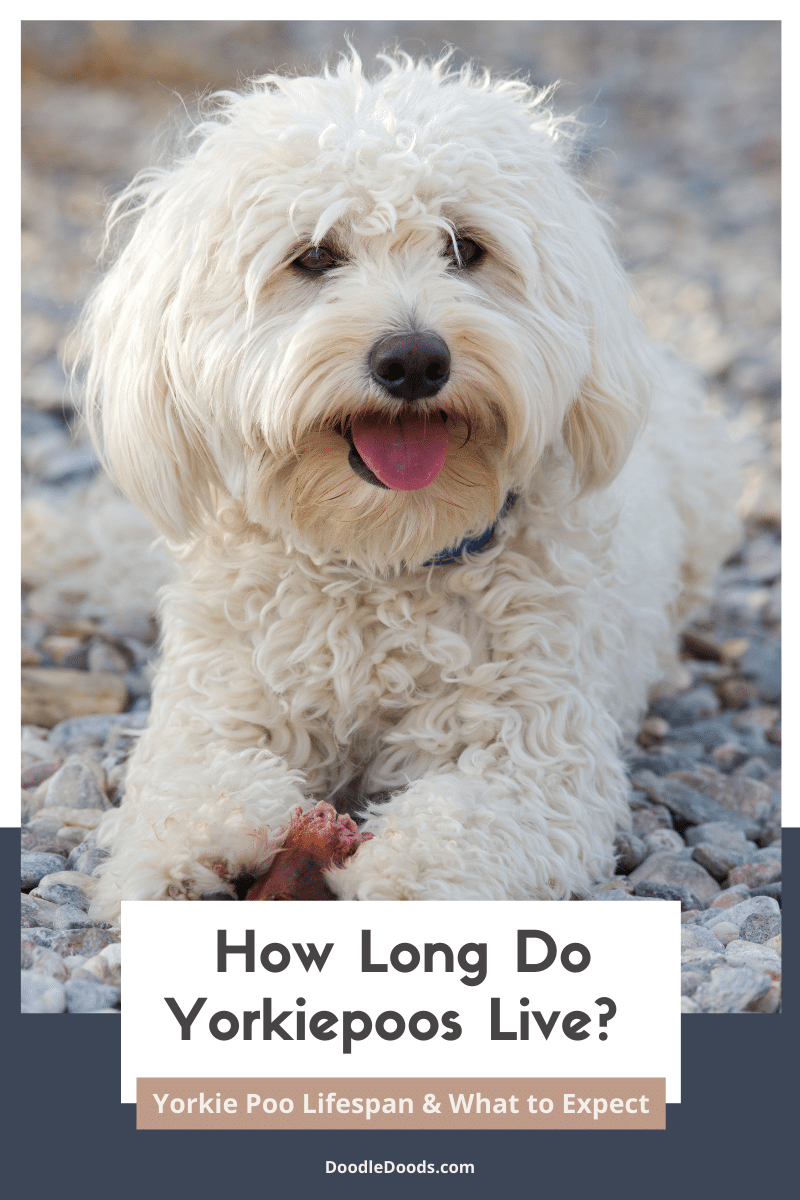
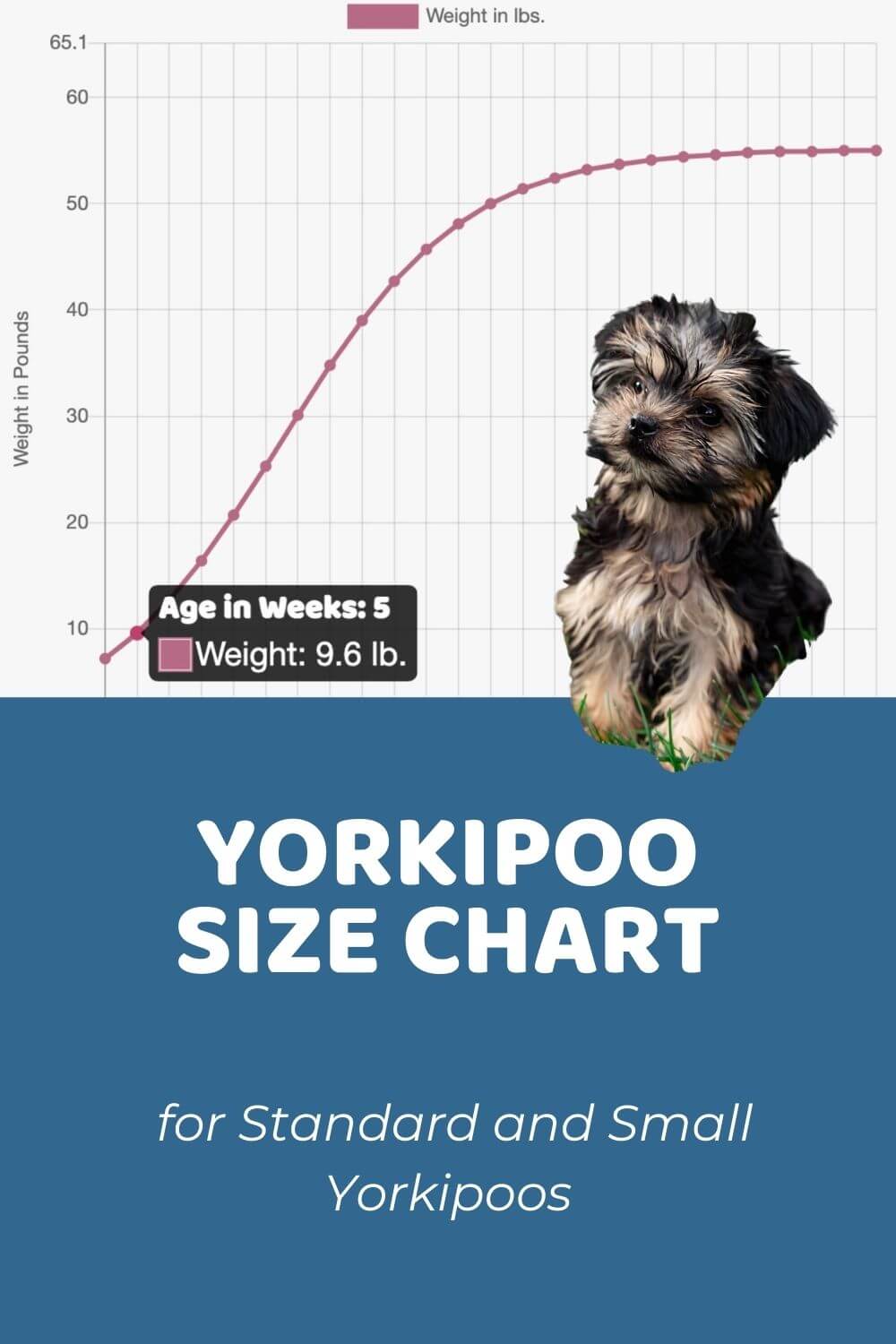

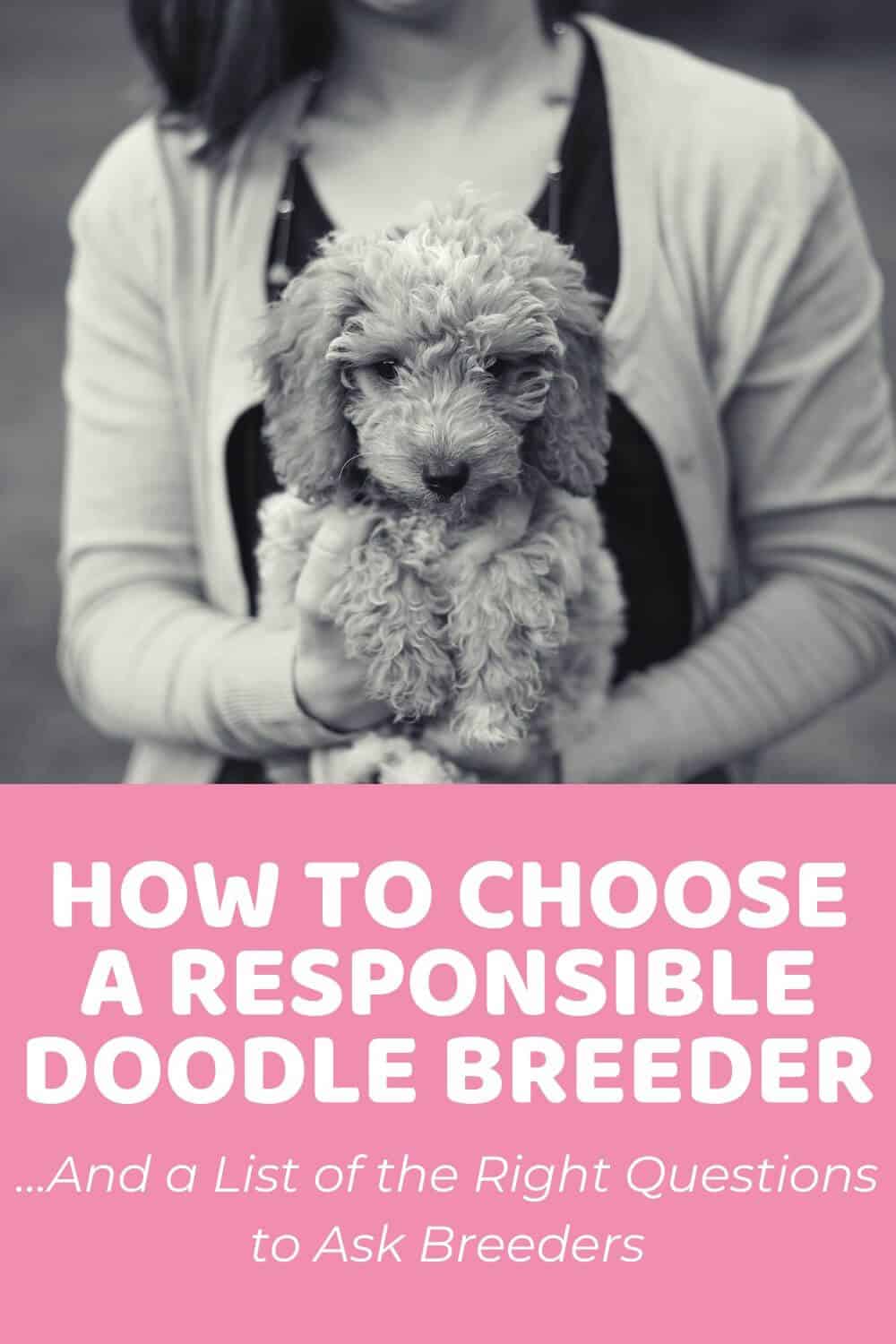
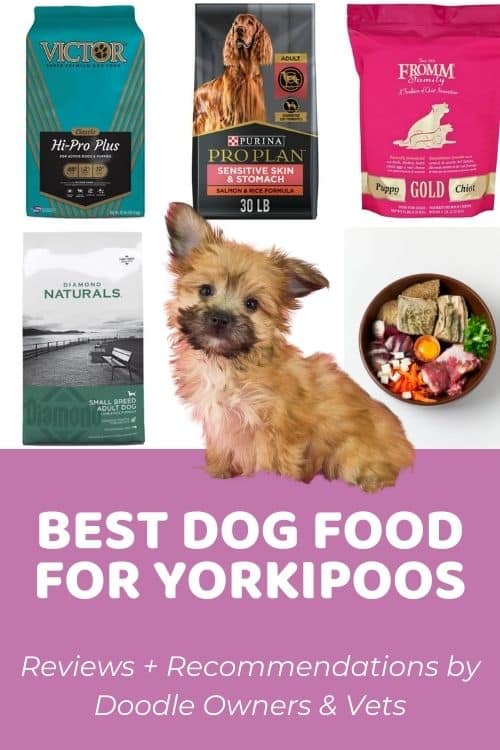
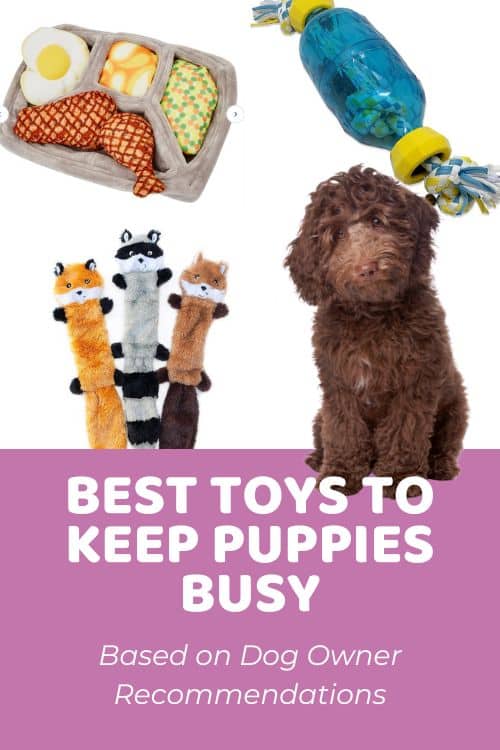
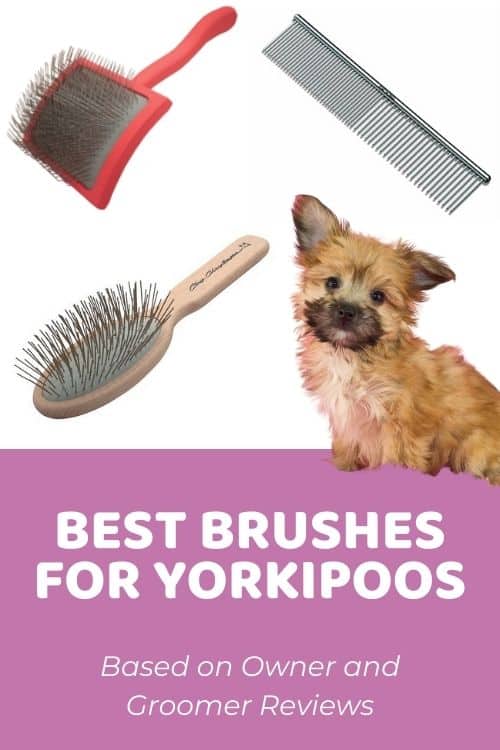
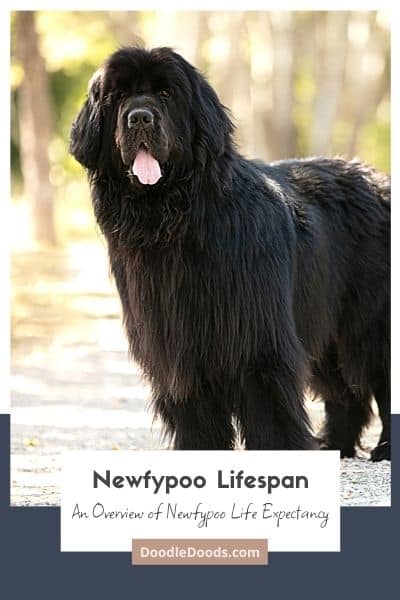
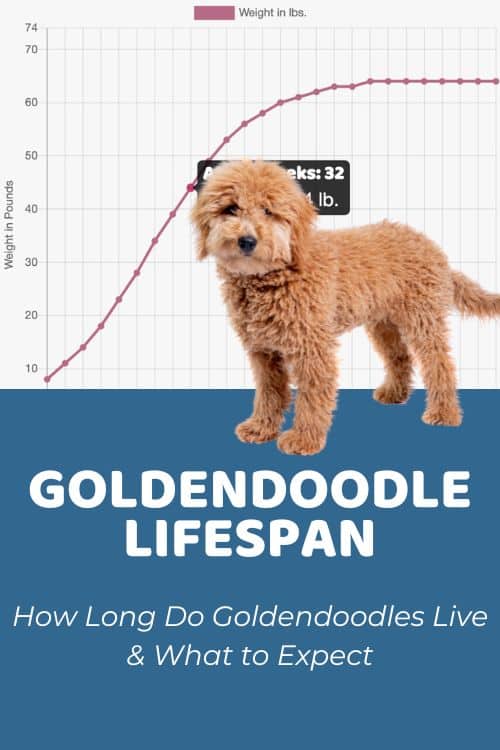
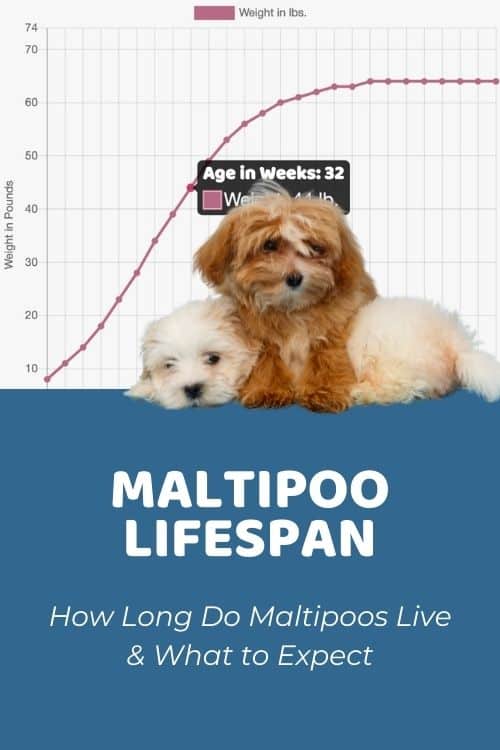
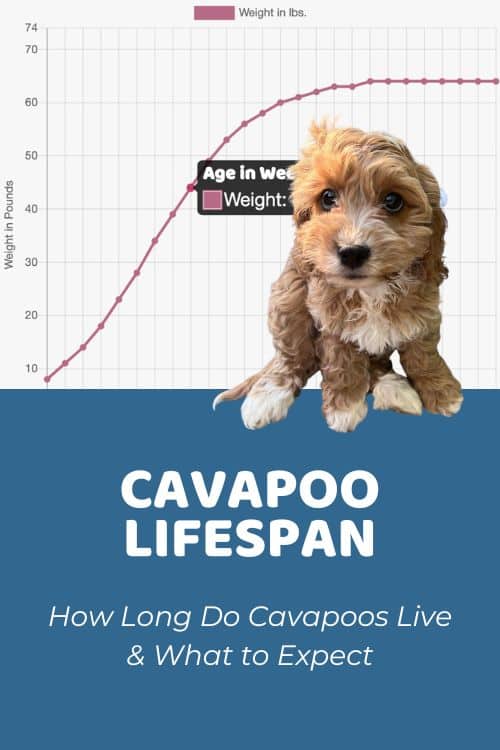
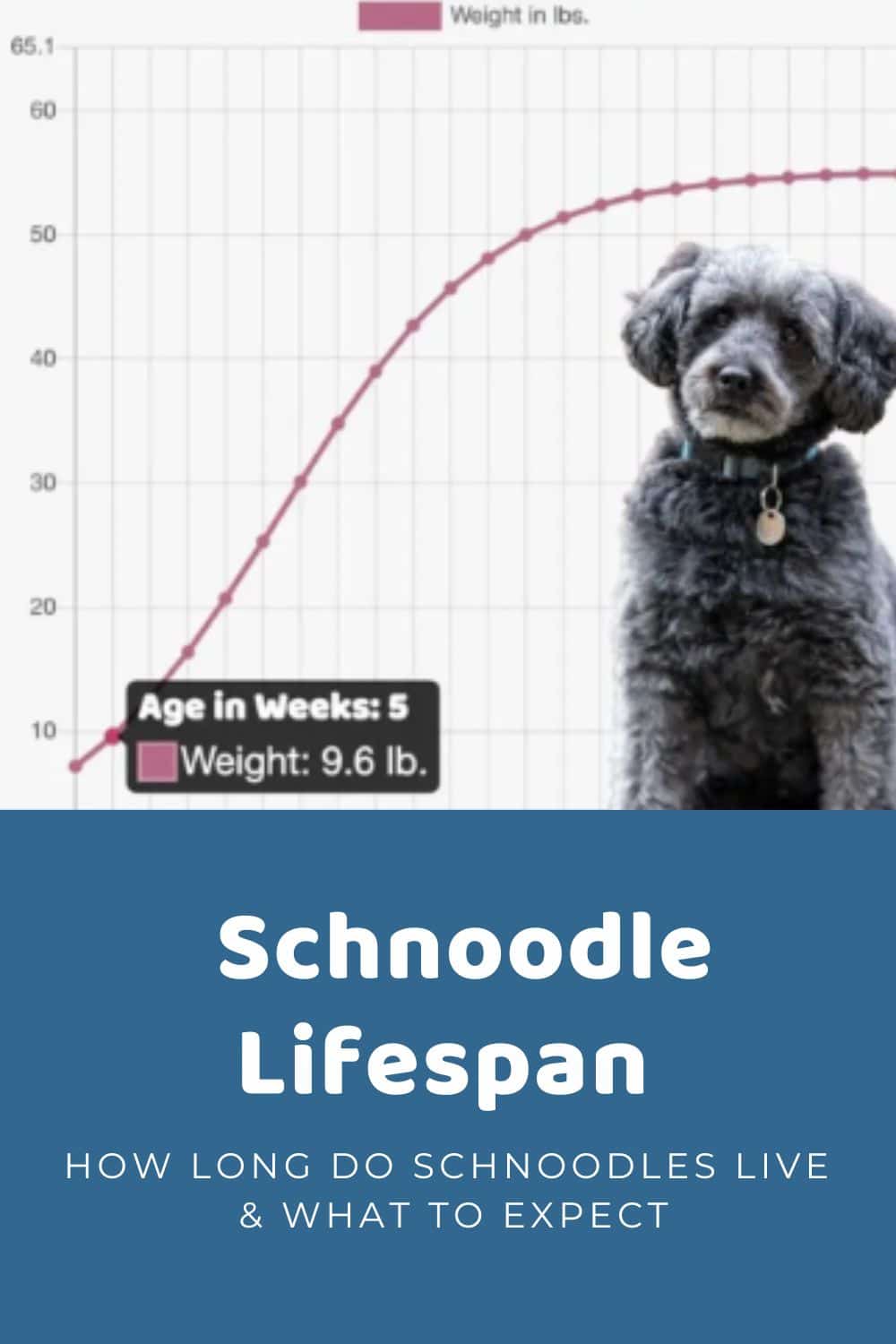
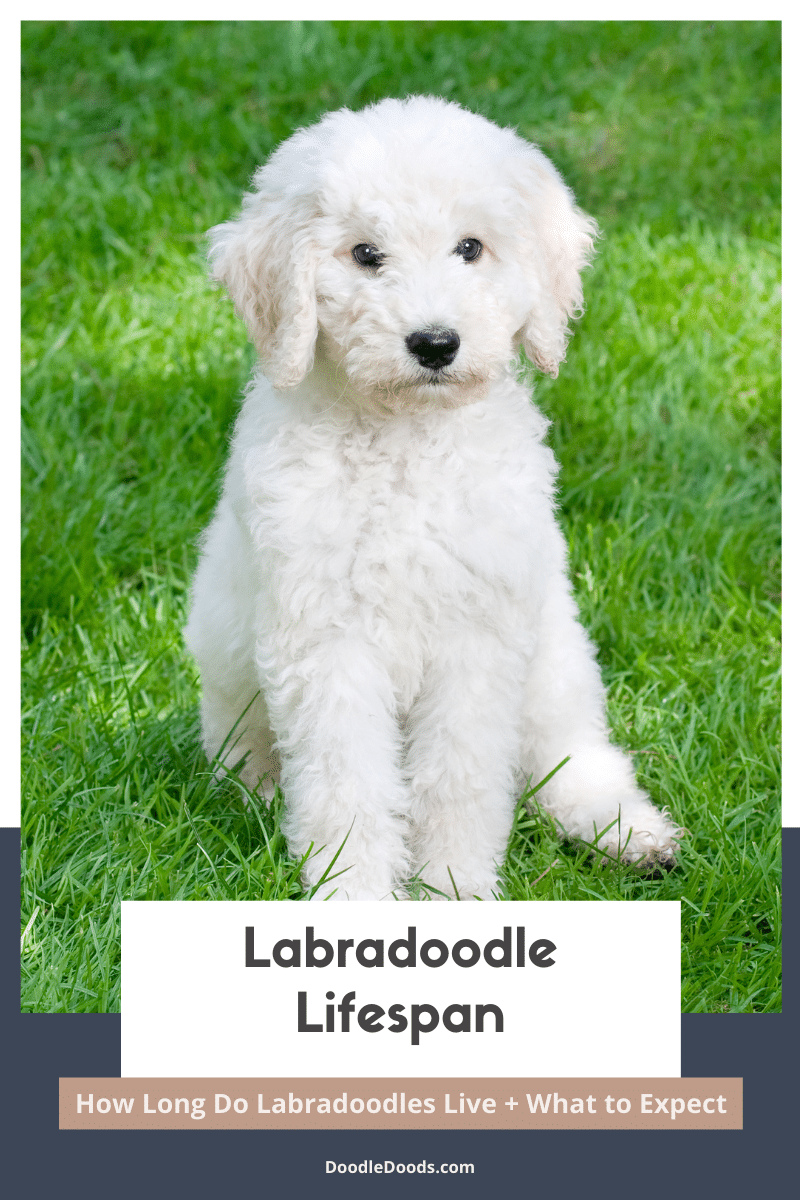
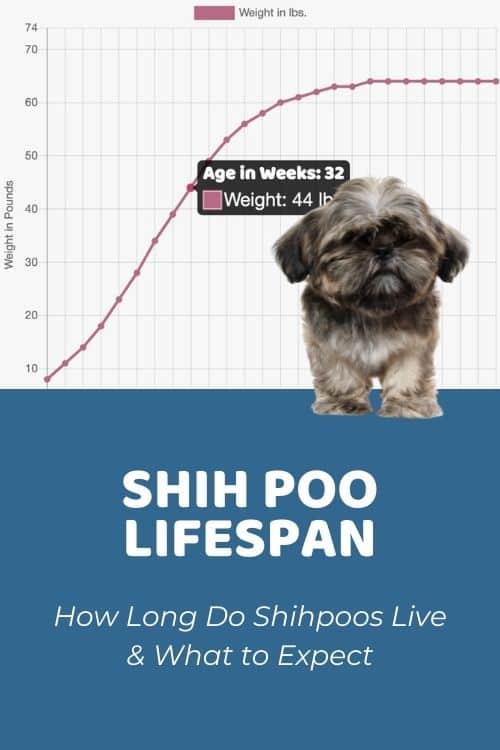
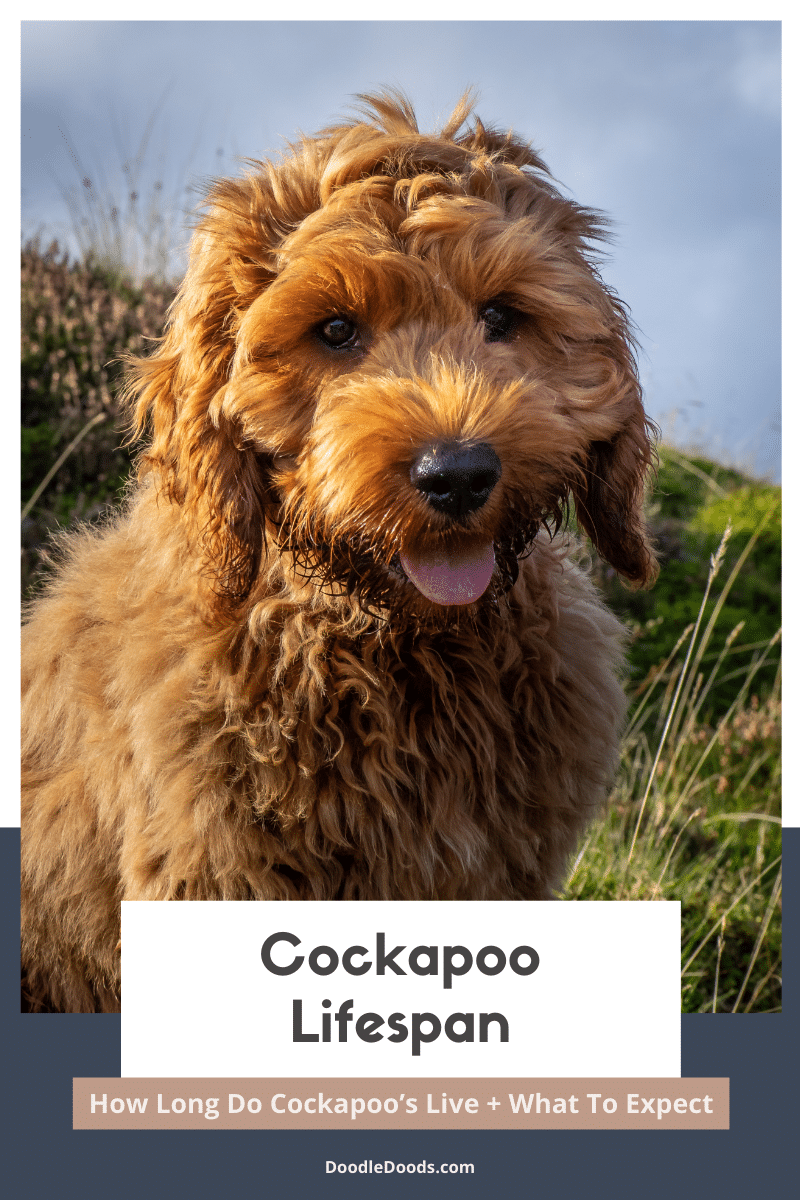
I love reading about Yorkiepoos! I’m so curious to know how long they live for.
August 25, 2023 at 9:44 am